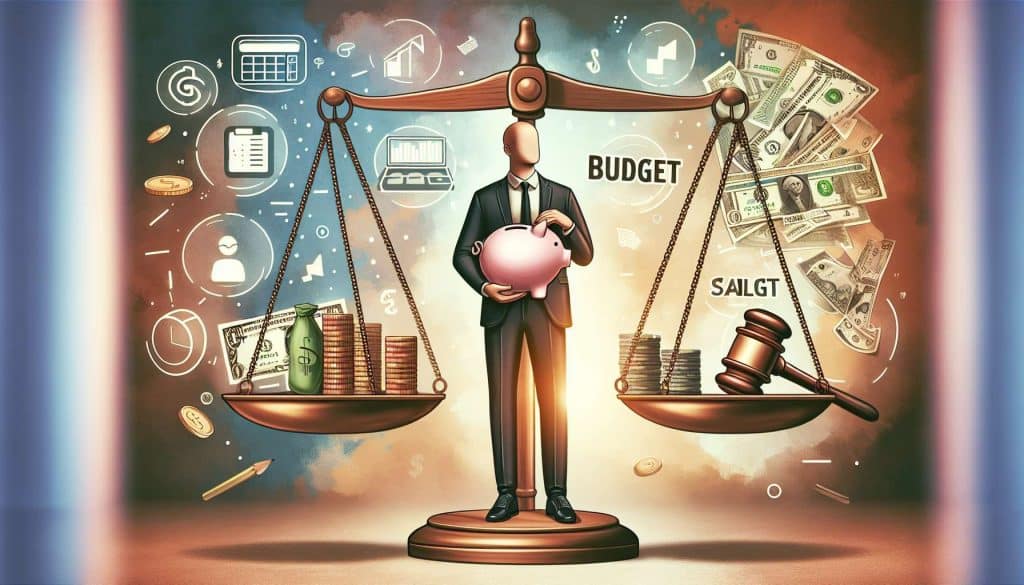Master Your Budget: Ultimate Guide to Personal Financial Success

Anúncios

Achieving Financial Mastery: A Comprehensive Guide
In today’s rapidly evolving financial landscape, gaining control over one’s finances is imperative. Personal budgeting serves as the cornerstone for financial well-being. Whether you’re striving to reduce debt, accumulate savings for a future endeavor, or simply maintain a stable financial standing, budgeting is the key. It provides a structured approach to managing money, ensuring expenditures align with personal financial aspirations.
Getting started with personal budgeting can be intimidating, especially for individuals who are new to it. However, with proper guidance, it transforms into an empowering tool that reshapes one’s financial path. This guide offers insights into essential personal budgeting strategies, highlighting mistakes to avoid and presenting practical steps for effective money management. With these strategies, anyone can gain confidence and take control of their financial future.
Understanding the fundamental aspects of budgeting is vital. Essentially, budgeting involves developing a monetary plan to allocate your income across various expenses within a specific time frame. Often handled monthly, this practice prevents unwanted debt accumulation and encourages savings. By treating it as a financial roadmap, budgeting enables you to traverse from current financial circumstances to your ideal milestones.
Anúncios
Understanding the Crucial Nature of Budgeting
The criticality of budgeting lies in providing clarity and oversight over one’s finances. It illuminates spending patterns, pinpoints savings opportunities, and lays the groundwork for reaching financial objectives. A well-structured budget alleviates the strain of living paycheck to paycheck, securing financial peace and fulfillment. By following a budget, achieving financial independence becomes more attainable, fostering a sustainable financial lifestyle.
Launching your personal budgeting journey involves initial assessments. Begin by evaluating your current financial status to gain perspective. Consolidate details of income sources, monthly outflows, outstanding debts, and existing savings. This assessment facilitates setting achievable financial goals and developing a realistic budget tailored to your personal financial landscape.
Categorizing expenditures is integral for simplifying budgeting. Distinguish between your fixed obligations, such as mortgage payments or insurance premiums, and variable costs, including groceries and entertainment. This categorization aids in discerning essential and non-essential expenses, providing a clearer picture of where cutbacks are feasible, if necessary.
Anúncios
Setting distinct financial goals contributes to budgeting success by imbibing purpose into the plan. Whether targeting debt elimination, constructing an emergency reserve, or saving for a significant purchase, clarity of aim galvanizes your budgeting resolve. Implement the SMART criteria—Specific, Measurable, Achievable, Relevant, and Time-bound—to optimize goal attainment.
Characteristics of Effective Budgeting
- Clear income and expense overview
- Realistic and personalized financial targets
- Adaptability to life changes
- Regular tracking and adjustments
- Integration of savings within the budget
Benefits of Mastering Personal Budgeting
Achieving proficiency in personal budgeting yields several advantages, primarily providing greater control over personal finances. Budgets reduce impulsive spending, encourage a disciplined financial lifestyle, and enhance savings, potentially reaching long-term financial aspirations more swiftly.
Budgeting simplifies prioritizing expenditures, sharply distinguishing between essentials and discretionary spending. The discipline fosters an environment conducive to achieving personal financial milestones, enhancing one’s confidence in future planning. By adhering to a budget, financial goals transform into attainable destinations rather than mere aspirations.
Furthermore, avoiding common budgeting errors is essential for effectiveness. One major mistake is underestimating expenses. Preparing for irregular costs, such as vehicle repairs or seasonal gifts, prevents financial derailment. Additionally, small, frequent purchases necessitate vigilance as they cumulatively impact the budget significantly.
Adjustments are inevitable, as life circumstances fluctuate. Thus, adapting the budget to reflect changes in income or expenses is vital for sustained financial health. Regular evaluations confirm the budget’s relevance, keeping it aligned with current financial demands and goals.
Overall, personal budgeting embodies the power of organized finance management, paving the way to achieving desired financial benchmarks. By adopting strategies such as the 50/30/20 rule, utilizing budgeting applications, and automating savings, individuals secure a foundation for enduring financial wellness.
- Aligned spending with financial priorities
- Promotion of regular savings contributions
- Reduction of financial stress and anxiety
- Identification and control over spending leaks
- Facilitation of prosperous financial decision-making





